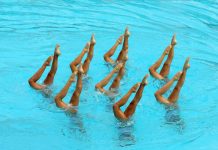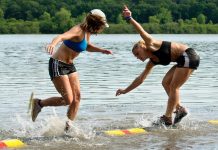Are you dreaming of a career as a pro athlete? While few people make a living out of sports, commitment to the sport and outstanding athletic ability will take you further.
Throughout the year athletes train, develop their skills, and improve teamwork under the guidance of coaches, sports instructors, and athletic trainers. They value critique, enhance their own results, and evaluate the tactics of their opponents.
Public appearances, diet, limits on exercise, strenuous physical training, and improvement evaluations, are all part of a professional athlete’s life. You must also develop your skills, mental strength, and characteristics to become one. Take a look below to find out exactly what it takes.

Decision Making Skills
Decision making is a crucial element of any sport, particularly fast dynamic team sports such as volleyball, soccer, rugby, and basketball.
Whether it’s determining how to properly prepare for a game, executing a recovery plan, or staying away from shortcuts, good decision-making is an ability that’s critical to the success of any athlete.
To win every game and competition at the national and international levels in individual and team sports, all performance factors need to be reconsidered.
Time Management Skills
Time management matters not only for the physical well-being of pro athletes but also socially and emotionally. To balance pressure and tension, athletes must manage their time to maintain strong mental health.
Spending time with friends and family throughout the day is another way for athletes to reduce and manage stress. The only way for athletes to excel is by being highly organized.
Negotiation Skills
Negotiation is often a formal, structured process of giving and taking, making proposals, and eventually reaching a compromise. Still, it can also involve two individuals trying to work out differences. You need to develop negotiation skills to be a pro athlete.
Negotiating power can be simply defined as controlling the other side. Individuals can be physically, psychologically, socially, and analytically affected. Effective negotiators seek to increase control in each of these fields.
Critical Thinking Skills
Critical thinking skills can help athletes perform best under pressure and stress. An athletes’ performance will be improved and maintained at a high level, even under intense pressure.
Developing critical thinking skills like any athletic skill is a continuous, incremental process.
Being able to provide clear and rational reasoning for the decisions you make and the action you take afterward, will give you a good reputation, leverage, respect, and the power to make further decisions and take greater responsibility.
A Positive Attitude
If disappointment dominates the day because you’re coping with an injury or being criticized by your coach, it can be difficult to keep up your morale.
Developing a positive mental outlook will certainly help. Emotions, both happy and sad, are inevitable and necessary.
They can also influence how well you think, your energy level, and other aspects of your physical performance.
The Power of Concentration
Concentration is an essential factor of sport that all athletes should focus on early in their careers.
Ultimately, by concentrating well, an athlete takes the necessary information to make the right decisions, such as reacting to an adversary or adjusting to the environment.
You must sustain focus for more extended periods and concentrate on relevant performance aspects.
Thomas Edison once stated, “The first requisite for success in any field is the ability to apply your physical and mental energies to one problem, incessantly, without growing weary.”

Conclusion
Pro athletes aren’t superhuman. They simply possess and utilize consistent skill sets that elicit positive results.
They believe in themselves and their ability to continually improve. Besides the characteristics mentioned above, you have to set realistic goals, surround yourself with the right people, and keep going through tough times, if you want to become a pro athlete.







